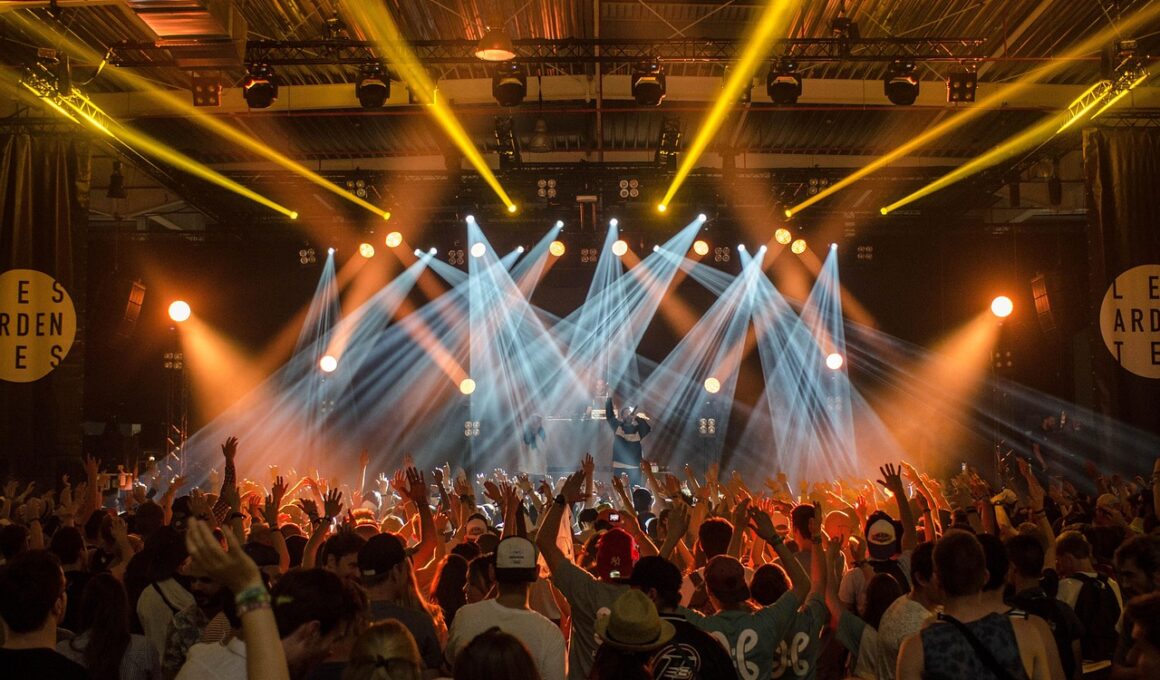Case Studies: Successful Event Marketing Campaigns and What We Can Learn
Event marketing has evolved tremendously over the years, becoming an integral aspect of a comprehensive marketing strategy. Campaigns centered around events provide businesses with the opportunity to connect directly with their target audience, generating potential leads and fostering lasting relationships. Successful campaigns not only attract attendees but also leave a positive impression, enhancing brand visibility. One prominent case is the launch event by Apple for their new products, which consistently garners significant attention across various media platforms. Apple masterfully uses its events as marketing platforms that engage consumers and generate buzz, showcasing their innovations. By focusing on creating a unique experience, they ensure attendees walk away with a sense of exclusivity. Another example is Red Bull’s extreme sports events that align with their brand identity. These events have become synonymous with the brand, reinforcing its adventurous image. By carefully selecting events that resonate with their customer base, companies improve their event marketing effectiveness. Understanding the target audience’s motivations greatly influences campaign success. Thus, analyzing competitors and related events can yield invaluable insights, optimizing upcoming marketing strategies.
One exceptional case in event marketing is the annual Comic-Con International, which has transformed into a mecca for fans of comics, movies, and pop culture. Initially a small gathering, the event grew exponentially as brands recognized the opportunity to showcase their products in this vibrant atmosphere. The event’s massive influence offers multiple collaboration opportunities, with corporations like Marvel and DC leveraging the venue to promote their upcoming blockbusters. The strategic choice of location in San Diego enhances its appeal, inviting enthusiasts from around the globe. Furthermore, the atmosphere at Comic-Con breeds creativity, allowing attendees to connect on deeper levels with the brands present. Effective social media strategies play a crucial role, with extensive online engagement before, during, and after the event. Companies create exclusive content, including behind-the-scenes access. This helps drive engagement and keeps their audience informed. Event organizers are aware that a seamless experience can lead to increased participation in future editions. Resulting in a cyclical phenomenon where engagement begets recognition. The case aptly illustrates the potential of community-focused marketing in shaping brand loyalty. Successful event marketing can forge genuine connections that resonate long after the event concludes.
Lessons from Successful Events
Examining successful event marketing campaigns reveals numerous lessons worth noting. Firstly, aligning an event with the brand’s core values and mission is essential. Brands that successfully resonate with their audiences have built campaigns that echo their identity. For instance, Patagonia’s annual film festival emphasizes environmental conservation, appealing directly to their eco-conscious customers. Secondly, offering exclusive experiences can significantly enhance attendee satisfaction. Access to behind-the-scenes tours or meet-and-greets with key figures can make attendees feel valued. For example, at major tech conferences, providing opportunities for networking can create a lasting impact, establishing valuable connections and fostering collaborations. Additionally, using innovative digital tools can revolutionize event marketing strategies. Virtual reality experiences during events can captivate audiences, allowing them to engage with products dynamically. Another key insight is the importance of feedback collection. Surveys post-event provide brands with important data on attendee preferences and areas for improvement. This contributes to a cycle of improvement for future events. Companies can refine their next events based on genuine insights, ultimately leading to enhanced engagement. The effectiveness of creating memorable experiences resonates deeply in today’s marketing landscape.
SXSW (South by Southwest) is another prominent event showcasing the magic of effective event marketing. This festival merges music, film, and interactive media, creating an immersive environment for attendees. What sets SXSW apart is its dedication to innovation and creativity, making it an attractive platform for brands. The sheer volume of diverse participants presents unique sponsorship opportunities, where brands effectively tailor their offerings according to various segments of the audience. Companies can sponsor panels or host parties that align with the festival’s overarching themes. These associations create a symbiotic relationship between brands and the festival atmosphere, enhancing visibility. Additionally, influencer partnerships throughout the event amplify marketing efforts. Brands collaborate with key opinion leaders who not only participate but also share their experiences online, reaching broader audiences. SXSW’s success demonstrates the power of creating an unforgettable experience while leveraging key partnerships to enhance messaging. It shows how to combine audience engagement with strategic brand placement. With careful planning and understanding of the target demographic, brands can navigate through chaotic environments to amplify their presence effectively.
Innovative Techniques in Event Marketing
Innovative techniques in event marketing have taken the industry by storm, reshaping traditional approaches. Incorporating technology into events allows brands to captivate audiences in unique ways. For instance, incorporating live streaming enables inaccessible audiences to engage with the event, significantly expanding the reach. This not only elevates brand visibility but also caters to modern consumer behaviors. Additionally, utilizing event apps can streamline attendee experiences. These apps can include features such as personalized schedules, maps, and networking opportunities. As attendees navigate through events, effective use of gamification engages users, encouraging participation and interaction. Furthermore, leveraging data analytics can provide companies with invaluable insights before, during, and after an event. Tracking attendee behavior can inform brands about consumer interests, allowing for better-targeted marketing campaigns. Integrating social media also fosters community, significantly boosting engagement during the events. Brands can create hashtags or contests that encourage sharing and interaction among attendees online. This interconnectedness enhances brand awareness while making attendees feel part of a larger community. Innovative techniques help brands communicate effectively while maximizing their marketing strategies during events. Thus, it will drive the evolution of event marketing into future iterations.
Moreover, brands have recognized the transformative potential of hybrid events, which allow both in-person and virtual participation. This flexibility caters to diverse audiences and can amplify reach. The COVID-19 pandemic acted as a catalyst for this evolution, prompting brands to adapt quickly to shifting consumer preferences. An example is the virtual edition of the Eurovision Song Contest (ESC), which retained its international audience while navigating pandemic restrictions. Engaging elements like live voting and interactive online platforms enhanced participation, replicating the excitement of attending in person. Furthermore, hybrid events can significantly reduce costs while broadening the audience. By embracing digital capabilities, brands can capture and analyze data to personalize future campaigns based on attendee preferences. Successful brands use hybrid events to maintain adaptability in their marketing strategies. They keep up with the evolving landscape, ensuring they remain relevant in a rapidly changing market. Offering options enhances accessibility and maximizes engagement. Future marketing strategies will certainly need to prioritize hybrid models to resonate with broader audiences. Brands can achieve a strong competitive edge by leveraging this pioneering approach in their event marketing campaigns.
Conclusion and Future Directions
Ultimately, successful event marketing campaigns highlight the importance of creativity, audience understanding, and adaptability. Years of research and analysis provide insights necessary for executing compelling events. The evolution of technology continues to enhance audience experiences and create avenues for engagement. Integrating innovative ideas with time-tested strategies is paramount in crafting memorable campaigns. Moreover, as the landscape shifts towards virtual and hybrid gatherings, marketers must embrace new technologies and platforms to stay competitive. Companies now have the chance to reach wider audiences than ever before through effective digital strategies. Future campaigns must prioritize flexibility and attendee engagement to remain relevant in a world where consumer preferences shift rapidly. By continually monitoring trends and emerging technologies, companies can ensure their marketing strategies remain evolving and tailored to consumer demands. Successful case studies demonstrate strategies that work, but brands must also innovate and explore new pathways to success. Final reflections on event marketing will underscore the invaluable lessons learned from past experiences. As businesses strive for excellence in marketing, they can harness these insights to propel their future campaigns and foster deeper connections with their audiences.


